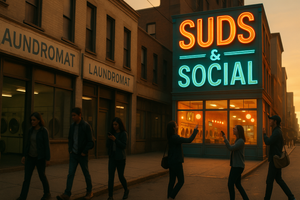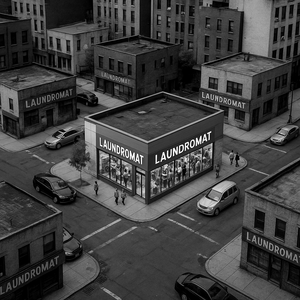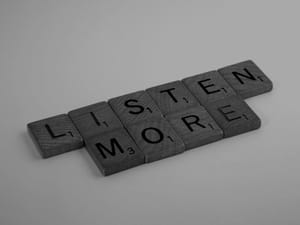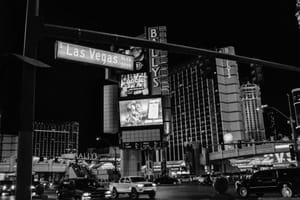20+ locations. Multiple states. 5 years. He's sharing how.
Join a small group private session with him at the Laundry CEO Forum
- Private session with him before the main event (20 seats only)
- Reserved exclusively for those who register by Monday at 3 PM EST
- He'll be sharing acquisitions, operations, management, and more.
Ralph DeSantis asked his clients a simple question that uncovered something profound about our industry.
When first-time clients came to his laundromat, he'd ask where they used to wash. The responses? "The store over by 47th ave." "The store on 6th ave." "The store by Pollo Tropical."
Never once did a client mention an actual laundromat name. Not even once.
But when Ralph asked these same clients where they ate lunch? "McDonald's on 2nd ave." Where they get gas? "Wawa on 6th ave." Where they grocery shop? "Publix on 167th."
Every other business gets named. Except laundromats.
Ralph's observation sparked something I've been thinking about deeply for a long time. Since my dad put the word “Laundromat” larger than the name of our laundromat. Why do clients refer to every business by name except ours? Why are we always "the laundromat near Target" or "that place on Main Street"?
We Did This to Ourselves
Here's my theory: For decades, we've trained clients to see us as generic utilities rather than actual businesses.
Drive through any city and count how many laundromats have signs that just say "LAUNDROMAT" or "COIN LAUNDRY" or "LAVANDERIA" or "WASHATERIA." Not as part of their business name, that's literally all the sign says. Like we're labeling a public restroom.
We assumed that putting "LAUNDROMAT" in big letters was enough. People need clean clothes, they'll see the sign, they'll come in. Simple, right?
Wrong.
The term "laundromat" itself actually lost its trademark protection and became completely generic¹. A perfect metaphor for what happened to individual laundromat businesses. When your category name becomes generic, your business becomes invisible.
Think about gas stations. They used to be generic too, "the gas station on Route 9." But somewhere along the way, they figured it out. Now people say "the Shell station" or "the Wawa." They created brand identity even though they're selling the same commodity everyone else is.
Meanwhile, we're still stuck in 1975, slapping "LAUNDROMAT" on our buildings and wondering why clients show no loyalty beyond convenience.
The Cost of Being Nobody
When clients can't name your business, several expensive problems emerge:
No emotional connection. As Ralph put it, "No connection, no loyalty." Clients don't feel attached to "the laundromat." They might feel attached to “The “Laundry Station", "The Washing Well”, "OrangeBag", “Bubbles aRe US”, “Splash 'Em Out”, “Dash Point Laundry”, “Columbia Pike Laundry” or “Columbus Express Laundry” but not to a generic category. Research shows that brand names with personality create stronger consumer recall and emotional attachment.²
Zero word-of-mouth value. When someone says "I went to the laundromat," that doesn't drive traffic to your specific location. But "I went to Laundry & Latte”, that's marketing. Studies indicate that word-of-mouth marketing drives $6 trillion in annual consumer spending, but it only works when people can name your business.³
Commodity pricing pressure. When you're just "a laundromat," you can only compete on price and location. When you're a brand, you can command premium pricing for the experience.
Lower business valuations. Try selling "the laundromat on Main Street" versus selling "Laundry & Latte." Which one sounds like it has actual business value beyond the equipment? Brand equity can account for significant portions of a business's total value.⁴
The Historical Mindset Problem
Here's the uncomfortable truth. For decades, the industry looked down on its own clients. Low income. Not sophisticated. Just renting machines and doing laundry.
With that mindset, why invest in branding? Why create an identity? They're just coming for the washers, right?
This dismissive attitude became a self-fulfilling prophecy. We didn't brand ourselves because we didn't think clients would care. And by not branding ourselves, we ensured they couldn't care even if they wanted to.
Other businesses serving similar demographics, dollar stores, fast food chains, check cashing services, all managed to build brand recognition. They understood something we missed. Every client, regardless of income, forms emotional connections with brands that respect them enough to have an identity. Consumer psychology research confirms that memorable brand names significantly influence purchasing decisions across all demographic groups.⁵
Breaking the Cycle
When we launched The Soap Box for our pickup and delivery service, we branded it intentionally from day one. Guess what? Clients actually use the name. They don't say "the delivery laundry service”, they say "The Soap Box”, even when we screw up 🤦♂️.
That's proof that clients will use your name if you give them a reason to remember it.
Thinking about the thinking of laundry:
When you realize your clients can name other businesses they use except yours, you see a huge opportunity. Where many are "the laundromat," the first to become a recognized brand wins its market.
Start by asking your clients Ralph's question. See if anyone can name the last laundromat they used.
I bet you'll be shocked by the silence.
That silence is your opportunity.
That's all I got for you today.
Waleed
PS: Join me and other laundry owners & operators at the Laundry CEO Forum
Echoing the thoughts of Seth Godin.
A brand is the set of expectations, memories, stories and relationships that, taken together, account for a consumer's decision to choose one product or service over another.
Footnotes:
¹ The Case of "Laundromat" - Trademark Genericization, International Trademark Association, 2023
² Consumer Psychology and Brand Naming, Psychology Today, 2023
³ Word of Mouth Marketing Statistics, Business Wire, 2023
⁴ Brand Equity and Business Valuation, Harvard Business Review, 2020
⁵ The Psychology of Brand Names and Consumer Behavior, Journal of Marketing Research, 2019





